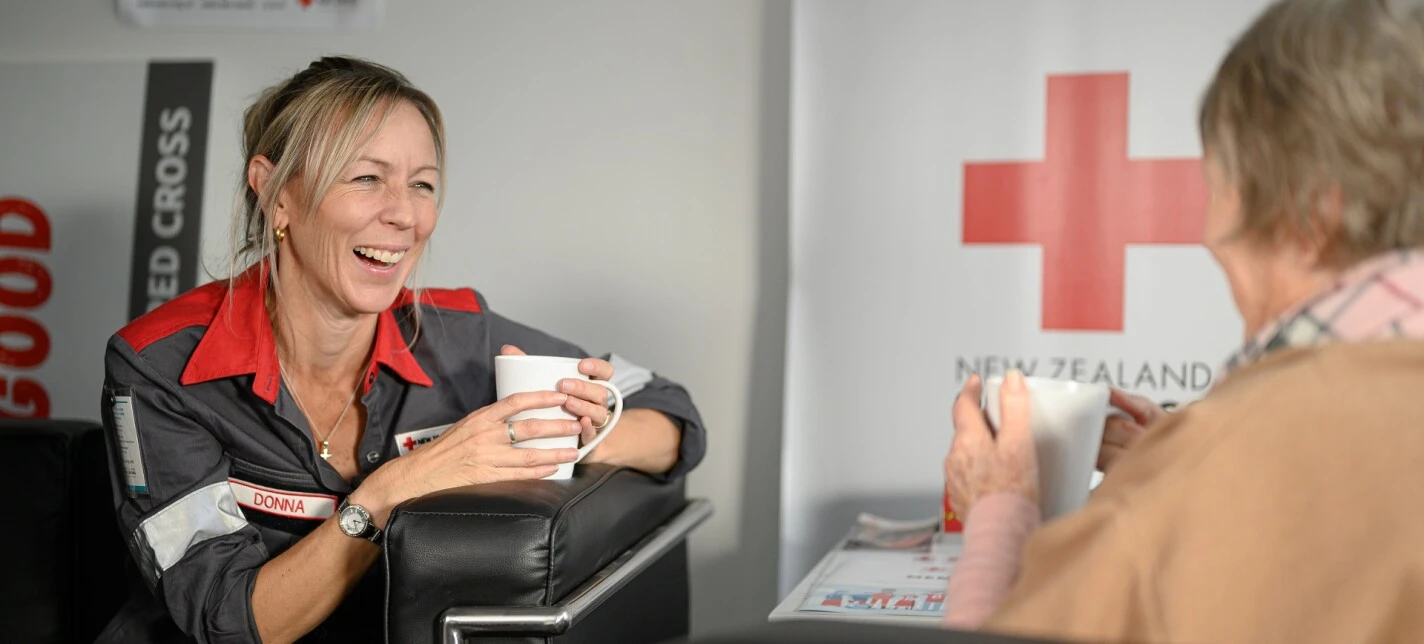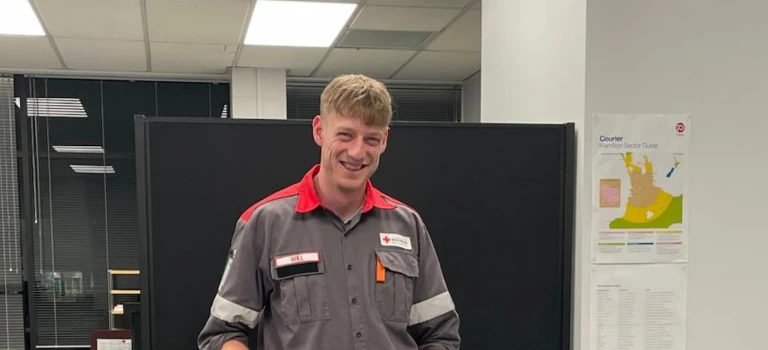Disaster Welfare and Support Team volunteer

Role description
Disaster Welfare and Support Team members are highly committed, skilled volunteers who provide welfare assistance to people affected by emergencies and disasters.
Disaster Welfare and Support Team members may undertake a variety of tasks, such as conducting community-based needs assessment and outreach, providing psychosocial support, supporting the distribution of household goods and providing support to evacuees at emergency civil defence centres.
Team members will undertake most of their training and work in their local area but may be mobilised to support New Zealand Red Cross’ response to an emergency event elsewhere in Aotearoa New Zealand.
Key responsibilities
- A commitment to respond to emergency events;
- Attend exercises where possible;
- Participate in debriefing and sharing feedback. This may include reflection on personal and team effectiveness during training sessions and emergency management situations;
- Promote emergency preparedness at self, team and community levels;
- Wear correct identification and uniform/personal protective equipment when representing New Zealand Red Cross during an emergency event;
- Maintain knowledge and understanding of health and safety requirements in the workplace and other New Zealand Red Cross policies relevant to the duties undertaken;
- Notify your Team Leader of your availability/unavailability in advance, for the purpose of responding to emergency events;
- Advise the Team Leader if your contact details change; and
- Apply and uphold the Red Cross Fundamental Principles in all activities.
Your tasks
As a Disaster Welfare and Support team member, the main roles you may be asked to undertake during deployment are:
- Needs assessment - Facilitate community-based needs assessment and outreach.
- Psychosocial support - Provide emotional and social support during emergencies to people who are affected.
- Provide information about community needs and sharing access to psychological services.
- Household goods and services - Support the distribution of household goods and services.
- Shelter and accommodation - Support evacuees at emergency civil defence centres, providing stretchers, bedding items, and immediate catering.
- You may be tasked with additional duties related to welfare assistance during disasters and emergencies.
Location
We have 20 teams around the country that are prepared to help in their communities or in neighbouring regions at short notice. Teams are listed by their regular training location.
Volunteer requirements and training
First year training
- Comprehensive First Aid (2 days)
- Psychosocial First Aid (1 day)
- Deployment Course (2 days)
Minimum commitments
- Training - Attend a minimum of 70% of trainings and exercises facilitated by your team per year (weekly or bi-weekly depending on location)
- Team meetings - Dates and timings as per local team arrangements
- Activations - Deployments may be up to seven days (including 2 days travel if required) with opportunity for a second rotation if required
Requirements
- Able to deploy to an activation and be on a roster for deployment where necessary;
- Be willing to travel throughout New Zealand in response to emergency events or training;
- Commit to the position for 12 months;
- Agree to operate under adverse working conditions;
- Undertake a Police check, with an outcome that is considered acceptable; and
- Commit to upholding the principles of Te Tiriti o Waitangi – partnership, participation and protection.
Teamwork and collaboration
- Demonstrates understanding of links between personal, team and organisational goals;
- Consistently participates in team-building activities;
- Ability to work with a diverse range of people;
- Ability to work effectively as part of a team and willing to take direction; and
- Resilient in adverse working conditions
Demonstrate care and commitment
- Actively demonstrates behaviours consistent with Red Cross Fundamental Principles and
New Zealand Red Cross Code of Conduct; and - Identifies and addresses needs, issues, and concerns of affected people.
Engage and influence others
- Demonstrates appropriate engagement and influencing skills aligned with Red Cross objectives
- Demonstrates a commitment to meeting the needs of those requiring assistance; and
- Establishes and maintains good working relationships with other teams and external agencies.
Health, Safety and Wellbeing (HSW)
We all have a responsibility for our own and others’ Health, Safety and Wellbeing (HSW) when undertaking activities on behalf of Red Cross. Therefore, it is important you:
- Take reasonable care of your own health and safety, do not adversely affect the HSW of others
- Complete health, safety and wellbeing induction, training, programmes and activities – as directed.
- Follow all reasonable instructions given to you relating to HSW.
- Cooperate and comply with New Zealand Red Cross policies, standards and procedures related to health, safety, and wellbeing.
- Use personal protective equipment (PPE) if required, to undertake any work activity
- If you identify a hazard and/or you are involved in an incident or near miss, report this straight away to your people leader
- Know what to do in an emergency – for example, how to escape during a fire or what to do if an earthquake occurs
- You must tell someone in charge if you have any health and safety concerns or worried about someone else’s health and safety
- New Zealand Police - support services (child/youth)
- Two referees for character checks
"I volunteered because I think DWST play a crucial role in disaster recovery. In an emergency DWST principally provides psychosocial support, which I think is an essential part of the recovery process for people – just as important as food and shelter".
Kendra Roddis, disaster welfare support volunteer

